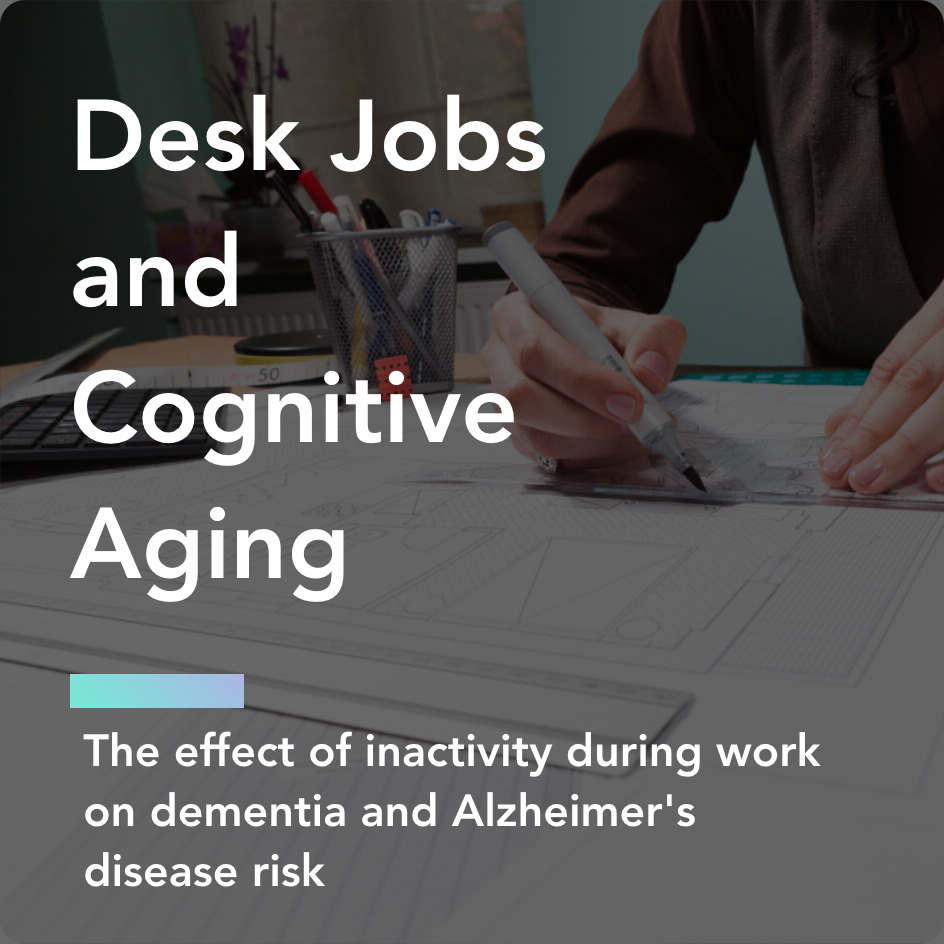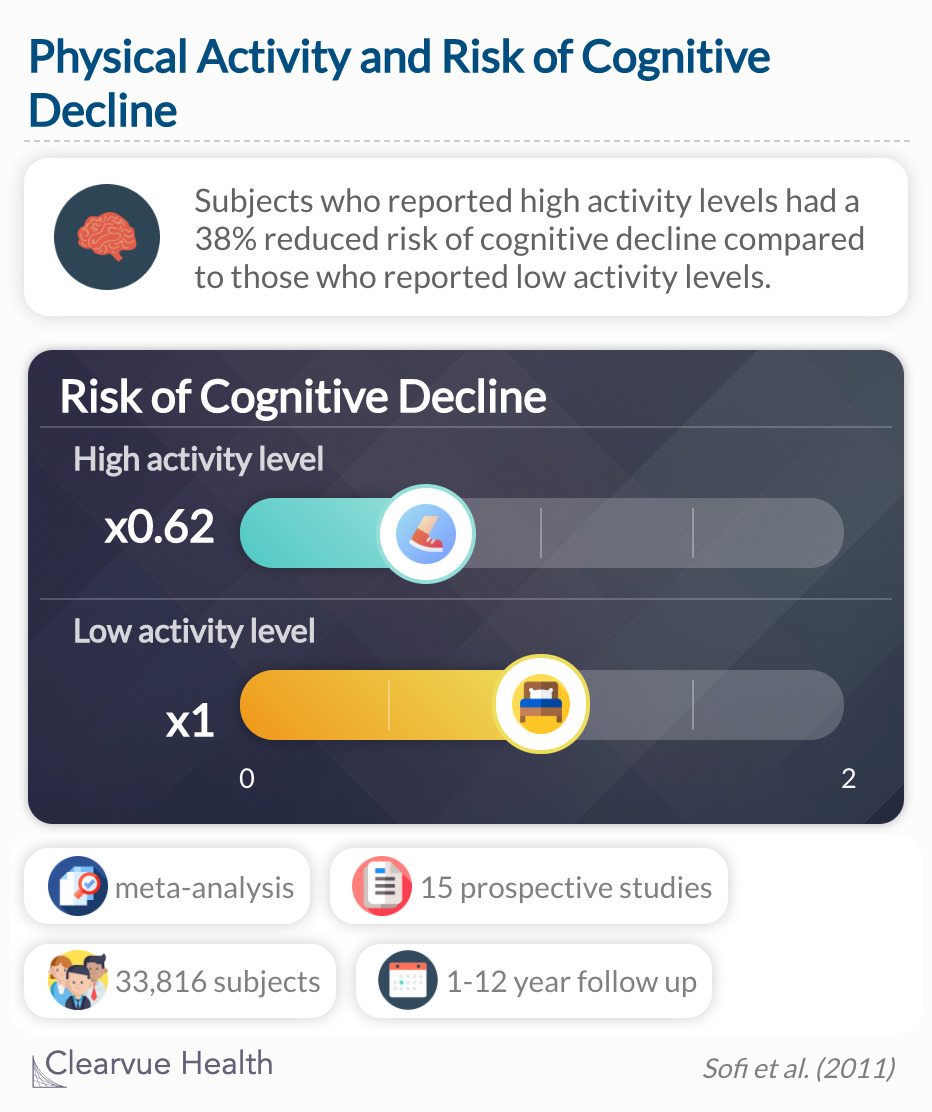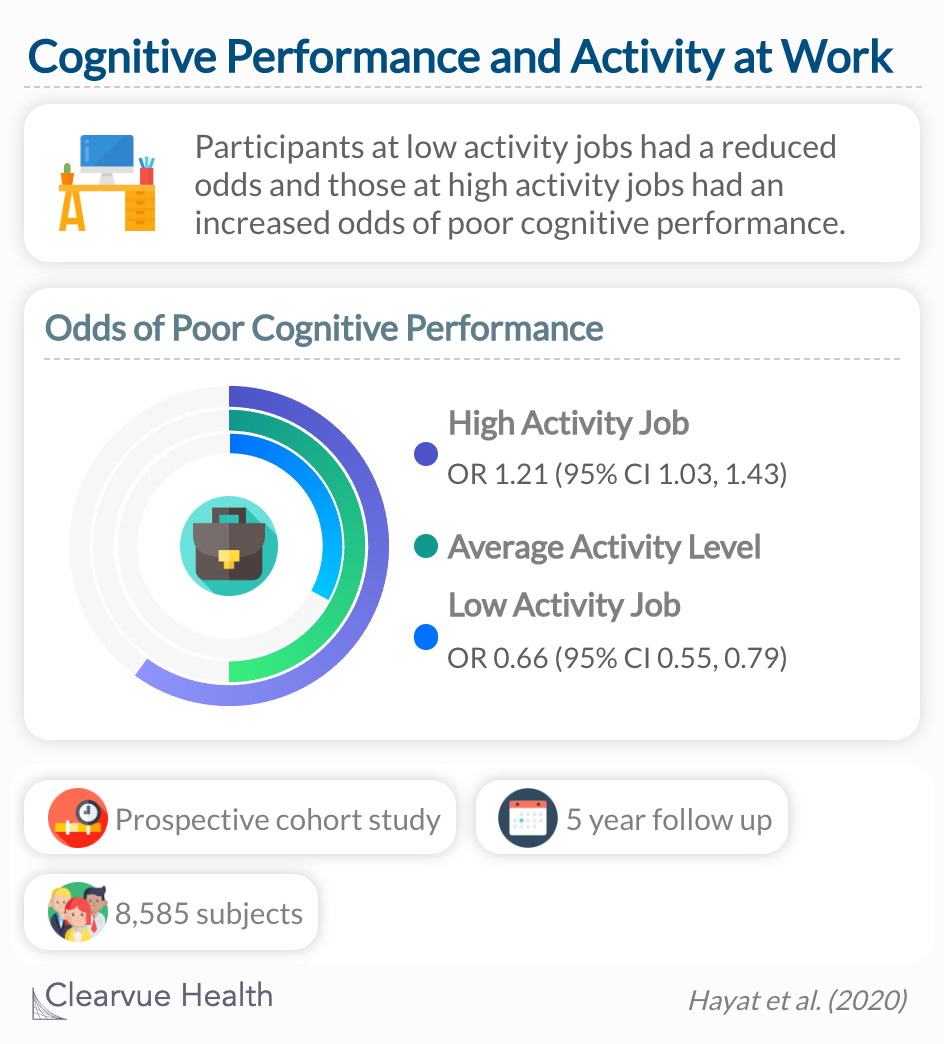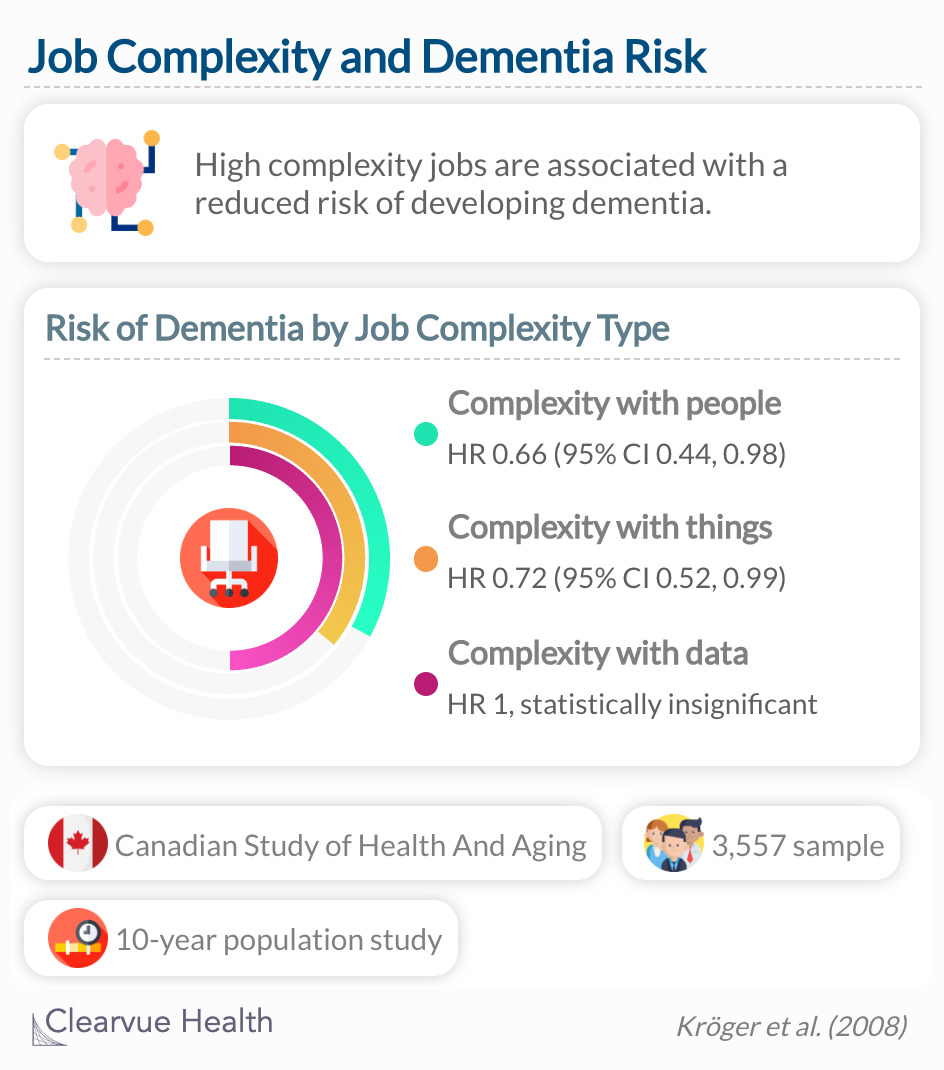Everyone has a unique vision when asked about their dream job. Some people want to be CEO of a successful company in Silicon Valley; others want to be famous dancers on broadway. Whatever the job may be, it will come with a variety of challenges and require special skills. A characteristic that distinguishes jobs from one another is their required level of activity. Some jobs are labor-intensive such as construction; other jobs are more sedentary such as a video game programmer. Research on inactivity at work reveals a lot about the short and long term implications for cognitive performance.
Study 1
The association between physical activity and cognition has been pretty well established in numerous studies over the years. A group of researchers searched for these studies and pooled their cumulative results. By the end of their search, they identified 15 quality, prospective studies with a total of 33,816 subjects.
Subjects who reported performing a high level of activity had a 38% reduced risk of cognitive decline with respect to those who reported being sedentary (HR 0.62, 95% CI 0.54–0.70; P < 0.00001).
Source: Physical activity and risk of cognitive decline: a meta-analysis of prospective studies
After analyzing the studies together, they found that subjects who reported high activity levels had a significantly reduced risk of cognitive decline compared to those who reported low activity levels. Exercise benefits every aspect of physical and mental health, and this is no exception. The fact that all those studies reported similar results speaks highly to the truth and validity of the association. However, physical activity can not be the main driver of cognitive health. Based on the next study, it may not even play a leading role.
Study 2
Next, researchers wanted to explore the association between inactivity and cognitive performance in a work setting. A sample of 8585 men and women were gathered from The European Prospective Investigation of Cancer in Norfolk. Participants were between 40 and 79 years old and were followed for an average of nearly 13 years. Cognitive performance was assessed with memory, attention, and reading tests. Participants were surveyed about their physical activity levels at work and outside of work.
Inactivity during work was inversely associated with poor cognitive performance.
Source: Cross-sectional and prospective relationship between occupational and leisure-time inactivity and cognitive function in an ageing population: the European Prospective Investigation into Cancer and Nutrition in Norfolk (EPIC-Norfolk) study
Unexpectedly, they found a negative association between inactivity at work and poor cognitive decline. In other words, the participants who were less physically active at work were more likely to perform better on cognitive tests. At first glance, these findings counter the existing opinions about physical activity and cognition. Therefore, it is important to look at other factors that could help explain these results.
Study 3
How can both of these results be true? How can the physical activity be good for cognition, but people in active jobs have poorer cognitive performance? Another factor to consider is the intellectual complexity of the job itself. Extensive research supports the link between intellectually stimulating activities and a reduced risk of cognitive decline. A sample from the Canadian Study of Health and Aging illustrated this association well.
“
Dementia is the general term for a group of brain disorders that cause memory problems and make it hard to think clearly. There are no proven ways to prevent dementia.
UpToDate
In fully adjusted Cox regression models, high complexity of work with people or things reduced risk of dementia (hazard ratios were 0.66 (95% confidence interval: 0.44, 0.98) and 0.72 (95% confidence interval: 0.52, 0.99), respectively).
Source: Is complexity of work associated with risk of dementia? The Canadian Study of Health And Aging
The study separated job complexity into three categories: people, things, and data. After analysis, they found a significant association between dementia risk and complexity with people and things. This means that subjects who were working jobs that required complex interactions with people or complicated skills were less likely to develop dementia later in life. Professions that are considered high in these complexity categories include law, medicine, social work, engineering, architecture, and music. There are plenty of jobs within these fields that could require an employee to sit at a desk for most of their workday.
Key Takeaways
Something important that the last study highlighted was the variety of skills a person can have. Everyone has strengths and weaknesses. Ideally, a person would be matched with a job that accents those strengths, whether it be with people or things. Likewise, the subject's cognitive testing scores and risk of dementia would differ depending on the skills they frequently use and their other health behaviors. In the end, there is evidence to support the cognitive benefits of active and inactive jobs, so occupation may not be the most important factor when assessing the risk of cognitive decline.






































